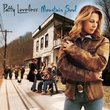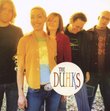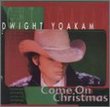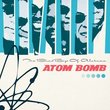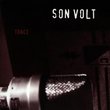| All Artists: Dizzy Gillespie Big Band Title: Showtime at the Spotlite, 52nd Street, New York City, June 1946 Members Wishing: 1 Total Copies: 0 Label: Uptown Jazz Original Release Date: 1/1/2008 Re-Release Date: 6/17/2008 Genres: Jazz, Pop Style: Bebop Number of Discs: 2 SwapaCD Credits: 2 UPC: 026198275327 |
Search - Dizzy Gillespie Big Band :: Showtime at the Spotlite, 52nd Street, New York City, June 1946
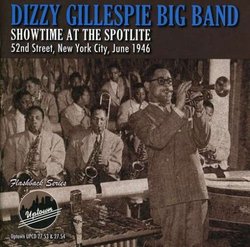 | Dizzy Gillespie Big Band Showtime at the Spotlite, 52nd Street, New York City, June 1946 Genres: Jazz, Pop
(2-CD set) A rare live recording of one the first generations of the Dizzy Gillespie big band legacy. This exciting audio archive, originally recorded by Jerry Newman, is presented in fully restored sound and showcases the... more » |
Larger Image |
CD DetailsSynopsis
Product Description (2-CD set) A rare live recording of one the first generations of the Dizzy Gillespie big band legacy. This exciting audio archive, originally recorded by Jerry Newman, is presented in fully restored sound and showcases the band from two nights in June 1946. Personnel is an all-star cast including Thelonious Monk, Ray Brown, Kenny Clarke, James Moody, and Milt Jackson to name but a few. Another Uptown Flashback release that will take you back in time to the place where it all happened. Similarly Requested CDs
|
CD ReviewsA Priceless Testimonial Of Great Jazz Michael F. Hopkins | Buffalo, NY USA | 08/13/2008 (5 out of 5 stars) "(From a broader feature, copyright 2008 Michael F. Hopkins) Whether your taste is for delightfully joyful Music, scorching Jazz seriously sending you soaring into high flight, or an invaluable testimony of African American culture at its deepest, gather here. One of the most potent editions of Dizzy Gillespie's Orchestra is captured in a breathtaking 2-CD set, presenting the band live from 1946 at 52nd Street's Spotlite Club. The set unveils a pair of concerts recorded by acclaimed aficionado Jerry Newman, and digitally transferred over 60 years later by Ted Kendall (same pair who brought 1945's epic Town Hall concert by Gillespie and Charlie Parker to CD a few years ago), released through Uptown Records. Those who know Gillespie only through decades of audacious showmanship, the legendary cheeks ballooning towondrous proportions, or a million others cases of gargantuan wit as outrageous as Louis Armstrong's, may prepare to be delightfully floored by the exceptionally engaging nature and variety of this Music. Wailing jams and romping jumpscan be found alongside haunting balladry and wistful serenades to touch the heart. No less than three versions of the visionary throwdown "Things To Come" can be found here, along with "The Man I Love", the hipster's walk of "Second Balcony Jump", "Cool Breeze", and "Our Delight", to say nothing of the beseeching "Day By Day" and other treasures. This edition of the band is quite special. A bit before the coming of Chano Pozo and the explosive birth ofAfro-Cuban Music, it marks the nexus point between the end of Gillespie's 1st Big Band (The "Hepsations of 1945") and the RCA Victor Big Band recordings of 1947 on which shook the world. You can hear the fire just a'kindling here,so prime with expertise and eloquence, yet so on the edge of so much more. No small factor of the excellence of these recordings is the presence of some of this Music's greatest legends, gathered under the helm of Gillespie and arranger Gil Fuller to form a pantheon of Jazz which has influenced a whole generation of artists around the world, among them Sun Ra and Toshiko Akiyoshi. Especially noteworthy, this set is the first clearly-recorded documentation of Thelonious Monk as a member of the Gillespie Orchestra. A solo here, some well-placed polychromatics there, the High Priest's unique presence flits at the edge of the ear, sparse pianistry full of blossoms hinting at what would come. Monk's classic "Round Midnight" is joined by vibesmaster Milt Jackson, a major presence throughout these recordings. Listen to the interplay between Monk and Bags, from the subliminal to the flamboyant, and you hear the rich empathy which would see this pair through some of the most classic recordings of the 1940s and 1950s. Listen for "One Bass Hit" featuring the bass wizardry of Ray Brown, and the hard driving kick steadily supplied by drummer Kenny Clarke. Tenorman James Moody can be heard at the beginning of his own expressive road to glory, and an "Intermission" on Disc Two features the incredible singer Sarah Vaughan alongside tenor legend Eddie "Lockjaw"Davis breathing alluring life into "Don't Blame Me". Of course, there's the trumpeter leading this whole shebang! Listen to Gillespie, hitting those impossible high notes in lightning runs matching any tempest, imploring soft attention through sweet lyrical whisperings, and invoking appreciative laughter with his spectacular rhythmatics, and enjoy an immortal Brass King just coming into his own as the major influence which continues to exert monumental precedents even now. A discovery as important as the 1940 Fargo concerts of Duke Ellington, or the 1957 Carnegie Hall concerts of Thelonious Monk and John Coltrane, SHOWTIME AT THE SPOTLITE is a priceless documentation of great musical genius at a special moment, superbly captured in live performance. Both innovative and a lot of fun, this is Dizzy Gillespie straight-on telling the world where it's at. BeBop spoken here. Come testify. " Wonderful music, but tenuous sound quality J. Holman | California | 03/11/2009 (4 out of 5 stars) "I'm sure the engineers did a masterful job making the most of the original recordings here, and I've certainly heard a lot worse. The sound is generally very clean (little or no pops or static) and reasonably balanced (decent definition among instruments). So in these respects the recording is better than many from the era. But the overall sound is decidedly "thin" (narrow dynamic range and frequency range).
The music itself is special, but if high sound quality is important to your listening enjoyment, this might not be the CD for you." |

 Track Listings (16) - Disc #1
Track Listings (16) - Disc #1
